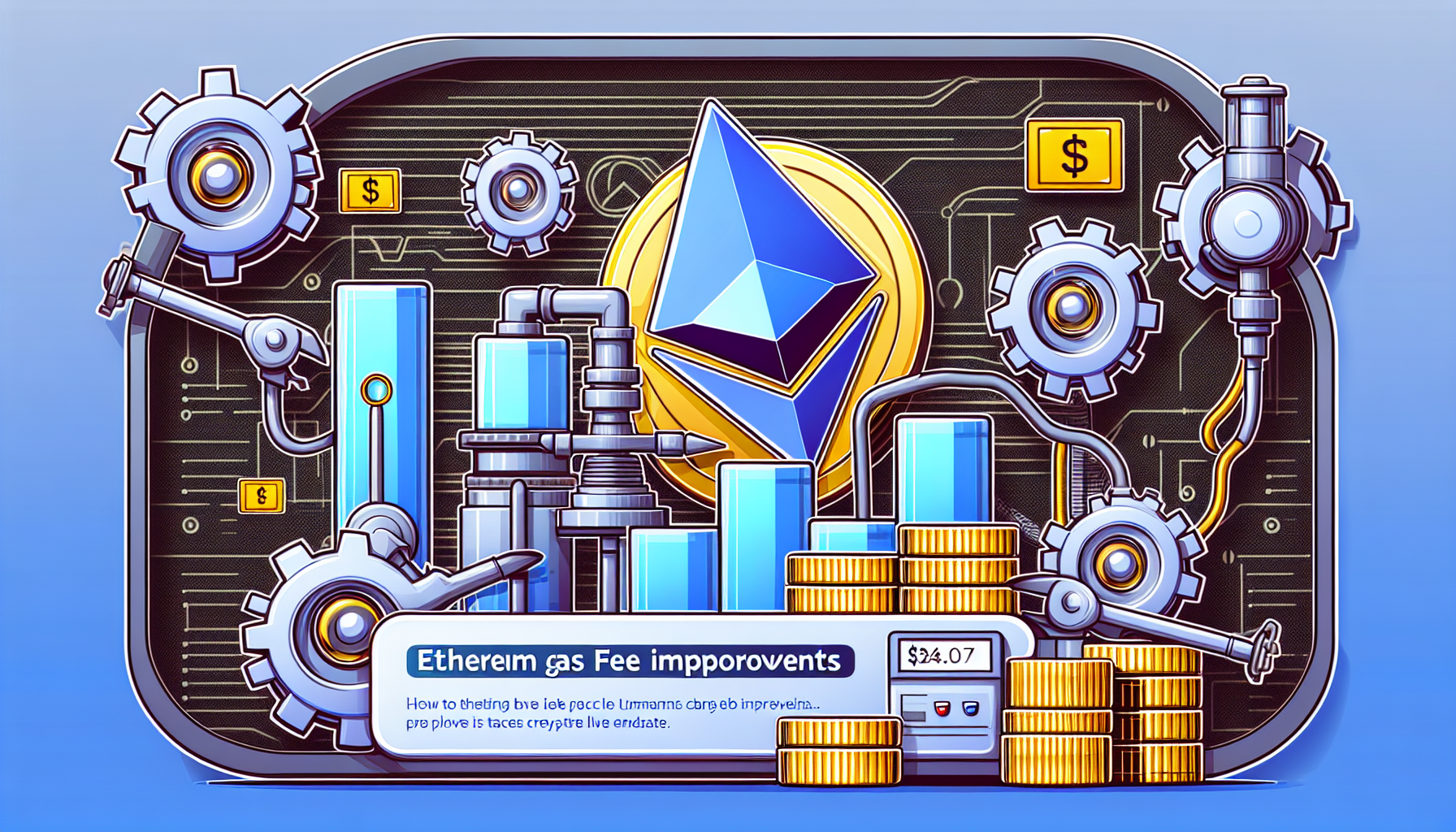Ethereum Gas Fee Improvements
The world of cryptocurrencies is constantly evolving, and one of the most pressing issues for users and developers alike has been the high Ethereum gas fees. These charges are not just a minor inconvenience; they can deter users from executing transactions and deploying smart contracts. As Ethereum continues to grow, addressing these gas fee inefficiencies becomes increasingly crucial.
Pain Points in Ethereum Gas Fees
Many users have experienced the frustration of executing transactions during peak times, only to be slapped with exorbitant fees. For instance, during the 2021 NFT boom, gas fees skyrocketed, often exceeding $100 per transaction. This scenario renders Ethereum less accessible for smaller transactions and new users, ultimately hindering the network’s potential.
Solution Analysis: Ethereum Gas Fee Improvements
To tackle these issues, various solutions have emerged aimed at optimizing Ethereum’s transaction fees. One notable approach includes Layer 2 scaling solutions such as Optimistic Rollups and zk-Rollups. By understanding their mechanisms, we can appreciate their benefits:

- Optimistic Rollups: These allow for faster transactions by processing them off-chain while still ensuring security through dispute resolution.
- zk-Rollups: These utilize zero-knowledge proofs, which can bundle multiple transactions into a single proof, drastically reducing on-chain data and, subsequently, transaction costs.
Comparative Analysis: Layer 2 Solutions
| Parameter | Optimistic Rollups | zk-Rollups |
|---|---|---|
| Security | Medium risk due to delays in fraud proof | High security with instant proofs |
| Cost | Moderately low fees | Very low fees |
| Use Cases | Ideal for dApps with frequent interactions | Best for transactions requiring high throughput |
According to a recent Chainalysis report, the utilization of Layer 2 solutions is expected to reduce Ethereum gas fees by about 60% by 2025. This significant reduction could transform Ethereum’s user base and its applicability in decentralized finance (DeFi).
Risk Warnings
While these improvements sound promising, it is vital for users to remain cautious. A significant risk associated with these innovations is the potential for smart contract vulnerabilities. **Always perform thorough due diligence** before using new technologies or protocols. This includes checking for security audits and opting for established solutions to mitigate risks.
As we navigate this technological evolution, it is essential to stay informed with updates from platforms like cryptoliveupdate. By keeping up to date, users can make informed decisions regarding Ethereum gas fee improvements.
Frequently Asked Questions
Q: What are Ethereum gas fees? A: Ethereum gas fees are transaction charges necessary to conduct operations on the Ethereum network, which have seen significant fluctuations in cost recently.
Q: How can Layer 2 solutions help? A: Layer 2 solutions offer Ethereum gas fee improvements by processing transactions off the main blockchain, thus reducing operational costs and congestion.
Q: Are there risks involved with these improvements? A: Yes, users should be cautious of potential smart contract vulnerabilities and should always conduct appropriate research when exploring new solutions.
In conclusion, the advancements in Ethereum gas fee improvements are pivotal in propelling the platform toward mass adoption. The innovative solutions presented and their implications promise a brighter, more efficient future for the Ethereum ecosystem.
Author: Dr. Jonathan Lin, a leading blockchain expert with over 50 published research articles related to smart contracts and decentralized technologies. He has also led security audits for prominent blockchain projects, ensuring robust protocols.